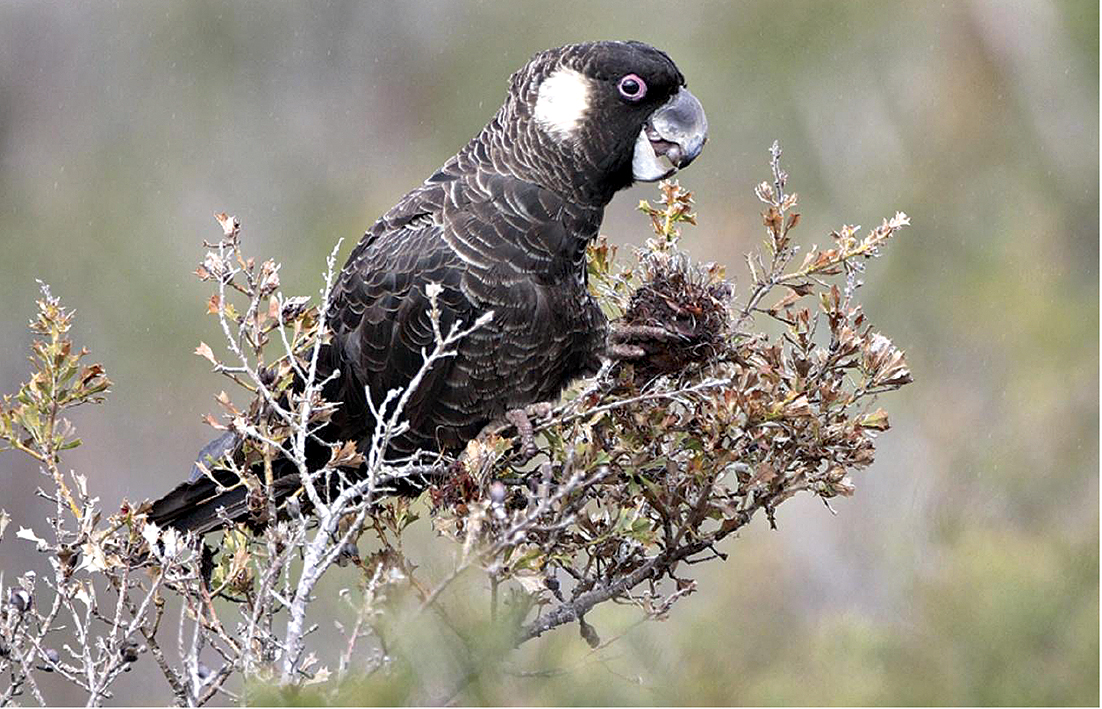
THE Leeuwin Group of Scientists, an independent body of leading Western Australian scientists on matters of scientific and national importance, has called for urgent action to prevent the mass starvation of Carnaby’s black cockatoos.
The driest and hottest summer on record for Western Australia is taking a dire toll on the last Carnaby’s cockatoos.
“Wildlife shelters and other facilities are stretched beyond capacity, with some converting much-needed space for other injured animals into specialised cockatoo enclosures to handle the five-fold influx of starving birds,” Leeuwin Group zoologist Professor Don Bradshaw said.
He said Carnaby’s rely on the last 30 per cent of remaining banksia woodlands with these fragile ecosystems nearing collapse from land clearing, climate change and fire impacts.
“The failure of banksias to flower in the last year across the south-west has hastened the onset of famine for the iconic Carnaby’s cockatoo.
“To avert extinction every Banksia tree represents a critical seed resource to save the species.
“Yet the state government policy of a ‘business as usual’ approach to prescribe large areas of banksia woodland that removes highly nutritious Banksia already in critically low levels due to flowering failure,” Prof Bradshaw said.
Despite banksia woodlands being listed as a threatened ecological community over 400sqkm of banksia habitat was burnt in the last two weeks and much more is planned this spring.
This is equivalent to burning the whole of Kings Park every day, and these woodlands are the last chance food resources for Carnabys cockatoo.
Prof Bradshaw said recent nesting surveys from prime breeding areas north of Perth have shown 2024 to be the worst breeding season on record due to drought, famine and sustained loss of tree hollows.
“The few birds that are laying eggs are doing so exceptionally late and will therefore face the challenge of caring for young in the nest over the hottest time of year,” he said.
The Leeuwin Group of Scientists convenor Professor John Bailey said it was a pivotal moment for the cockatoos.
“Despite being warned of this point being reached for many years, the government’s plan is to wait for a report from the Department of Biodiversity, Conservation and Attractions who have no action or contingency plans in place,” he said.
“We must immediately pause the government’s burning program in our banksia woodlands – a simple and effective precaution that may stay the extinction of the species,” he said.
Meanwhile, one of Australia’s most iconic species is literally falling from the sky.
The Leeuwin Group of Scientists comprises leading WA scientists and is an independent body on matters of scientific and national importance. For further information go to the Leeuwin Group website.